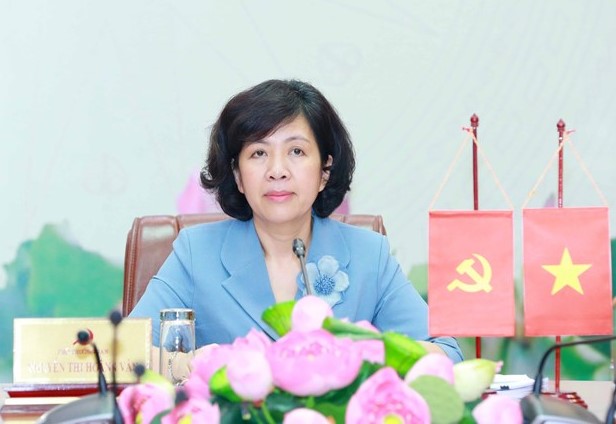 Politics & Law
Politics & Law


|
| Nguyễn Thị Hoàng Vân, deputy head of the Party Central Committee’s Commission for External Relations, led a Vietnamese party delegation at the 36th meeting of the Standing Committee of the International Conference of Asian Political Parties (ICAPP), held online on September 3. VNA photo |
HÀ NỘI - A Vietnamese party delegation attended the 36th meeting of the Standing Committee of the International Conference of Asian Political Parties (ICAPP), held online on September 3, which brought together representatives from 24 political parties in Asia,.
Addressing the event, Nguyễn Thị Hoàng Vân, deputy head of the Party Central Committee’s Commission for External Relations, highlighted efforts of the ICAPP Secretariat in maintaining the operation of the organisation given the complex developments of the COVID-19 pandemic, contributing to promoting solidarity, cooperation and experience exchange between political parties, while proposing measures to boost the ICAPP’s activities in the new situation.
The Communist Party of Vietnam would continue to play an active and responsible role in the ICAPP’s activities, for peace, cooperation and development in the region and the world as well, she affirmed.
The delegates reviewed the operation of the ICAPP after the 35th meeting, and focused discussions on the ICAPP’s activities from now to the end of this year and well as in 2022, especially preparations for its 20th founding anniversary, and cooperation between the ICAPP and the United Nations.
The ICAPP was set up in September, 2000 with an aim to boosting exchange and cooperation among political parties in Asia. After 20 years of establishment, it has affirmed its role in promoting cooperation in the region through the role of political parties. VNA/VNS




